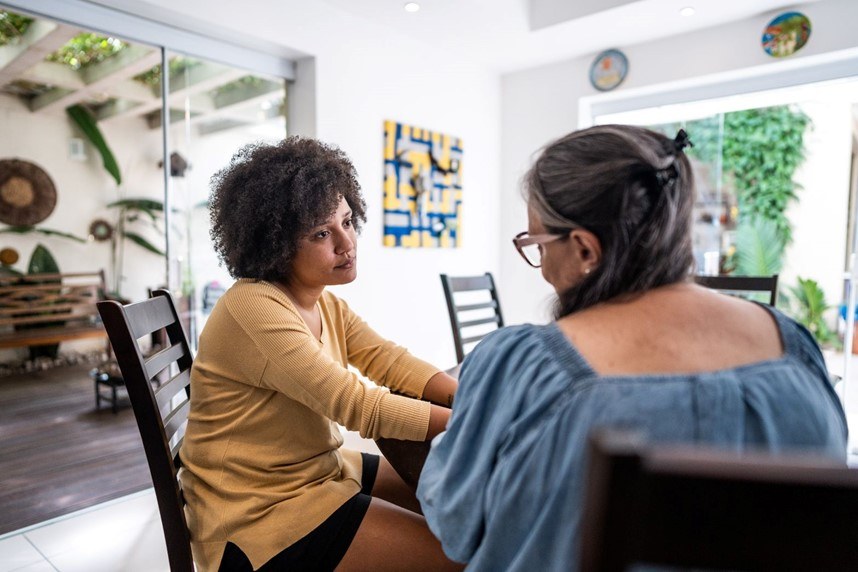Supporting Survivors: Domestic Violence Awareness and Resources at Brevard Health Alliance
Domestic violence is a widespread problem that disproportionately impacts women. It is important for communities to offer resources to those affected by domestic violence. At Brevard Health Alliance (BHA), we proudly provide comprehensive healthcare services and unwavering support to domestic violence survivors. Regardless of their situation or ability to pay, BHA focuses on taking care of both the physical and emotional well-being of individuals.
Overview of BHA’s Services
Brevard Health Alliance aims to offer affordable healthcare to all, regardless of finances or insurance. BHA goes beyond addressing just physical ailments. We also focus on mental health, dental care, and women’s and children’s health. Our services include addiction therapy, managing chronic diseases, and other essential healthcare needs.
BHA is dedicated to providing holistic care to help survivors. This compassionate and empathetic approach creates a trustworthy atmosphere where patients can freely discuss their health concerns.
Domestic Violence Awareness Initiatives at BHA
At BHA, we recognize that dealing with domestic violence requires a team effort.
BHA collaborates with shelters, advocacy groups, and law enforcement agencies to create a strong network of resources to both raise awareness and support survivors of domestic violence. Our providers can help connect people who need help with the supportive services they need.
The Cycle of Abuse in A Relationship
In abusive relationships, several recurring stages have been identified among women who have experienced abuse and domestic violence. These stages include:
- Stage one: Tension building
- Stage two: Incidences of violence
- Stage three: Reconciliation
- Stage four: Calm
The stages of abuse may not always occur in the same sequence, and not all stages of the cycle of abuse are required to constitute an abusive relationship.
Here is a closer look at each stage:
- Tension Building – During this stage, the abusive partner may start exhibiting early signs of abusive behavior, which gradually intensify and become more frequent over time. As the external world becomes increasingly out of control, the abusive individual may seek solace in the relationship to regain control.
- Incidence of violence – The tension that builds up during the initial stage of the abuse cycle begins to dissipate, potentially leading to one or more abusive incidences. During this phase, the abusive partner actively seeks to reestablish a clear sense of power and control. An abusive incident often varies with each occurrence or from one relationship to another.
- Reconciliation – Following the abusive incident, the abusive partner may perceive a reduction in tension, but the experience can be quite the opposite for the recipient of the abuse. Once the tension has subsided, the aggressor might be inclined to reconcile and make amends for their actions. This could involve offering apologies, showing affection, or making promises never to repeat the behavior. During the reconciliation stage, the abusive partner may engage in actions that might appear romantic, supportive, and affectionate.
- Calm – In the calm phase, the abusive partner may maintain their attentiveness, but the person receiving the abuse may observe a shift from their partner’s apologetic behavior, as their abusive partner begins to offer excuses for their actions. In the calm stage, abusive behaviors may be downplayed or reduced. While the abusive partner initially appears eager to mend things, they may now convey a subtle sense of dismissal that’s hard for the survivor to pinpoint. Over time, the survivor may begin to feel the tension resurfacing as the cycle of abuse commences anew.
Awareness is a crucial element in combating domestic violence. Recognizing when you or someone you know is experiencing domestic violence is the first step to healing. BHA is committed to helping survivors recover from the extensive trauma caused by domestic violence.
Medical and Mental Health Services for Survivors
Survivors of domestic violence may have physical injuries and long-term emotional trauma. BHA provides them with essential medical and mental health services. Survivors should receive primary medical care, treatment for injuries, STI screenings, prenatal care, and HIV testing.
At BHA, we offer care that supports survivors through counseling sessions that address their physical and mental well-being. These sessions help survivors with issues such as anxiety, depression, PTSD, and low self-esteem after trauma.
Empowering Survivors: Brevard Health Alliance’s Path to a Safer, Healthier Future
We aim to provide a caring and dynamic support system for domestic violence survivors. BHA offers comprehensive healthcare services that focus on improving overall health and well-being. We strive to embody our mission by providing healing and support for our community. We encourage those in need of resources to also look into support at The Womens Center of Brevard. For more immediate assistance, dial the 24/7 Domestic Violence Hotline at 321-607-6809.













































































































































